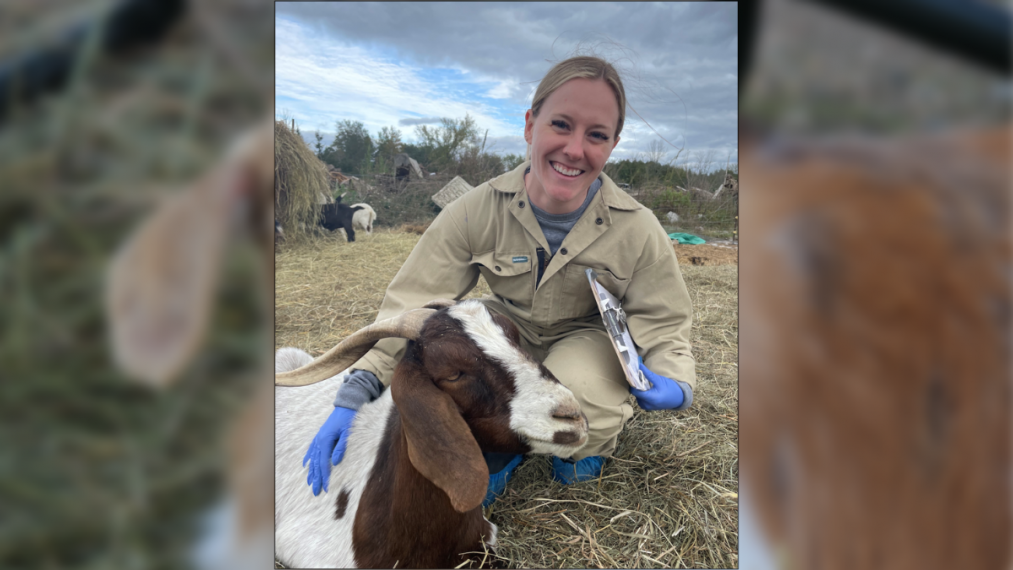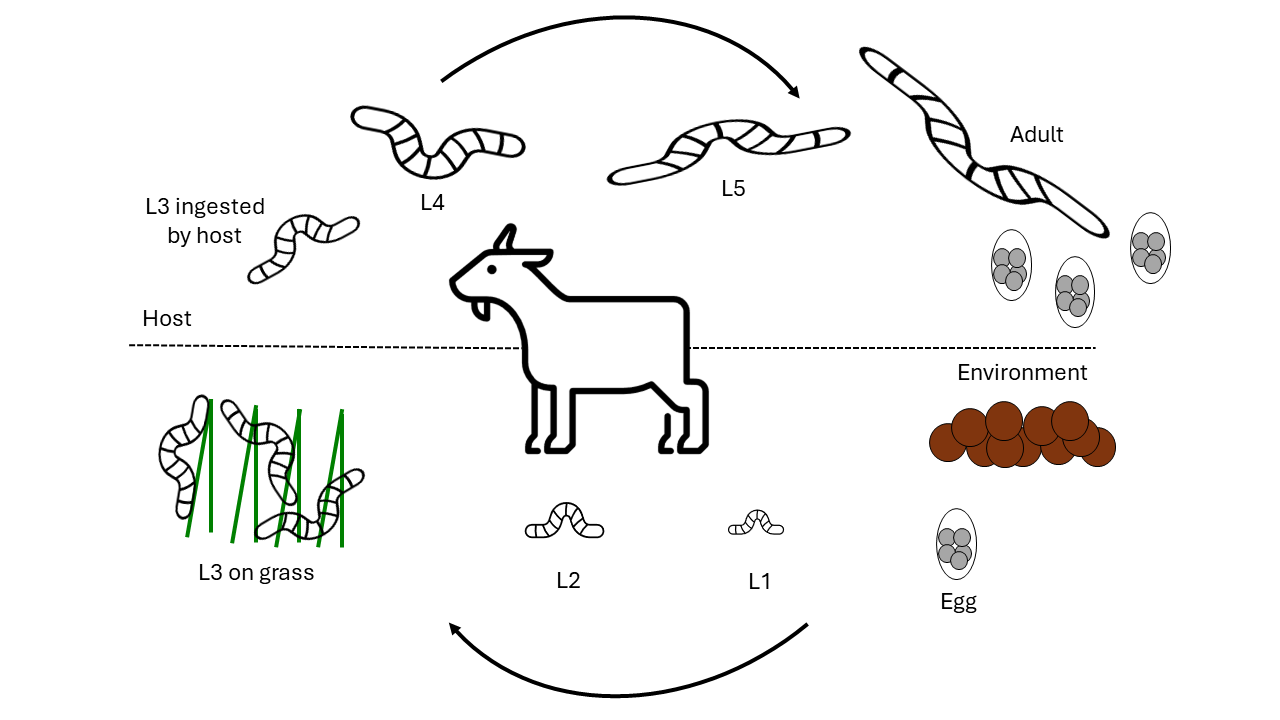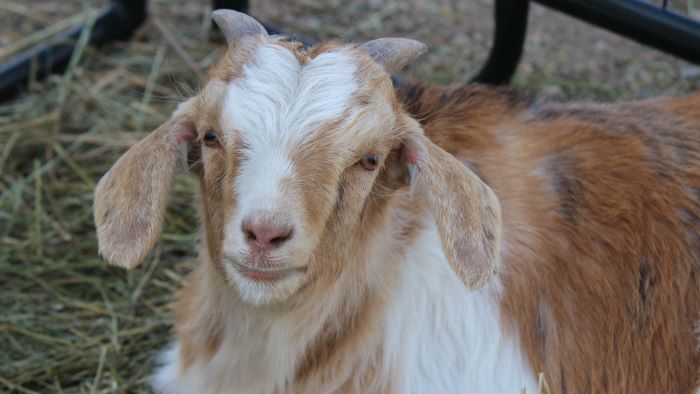Student goat immunity project will help farmers breed healthier herds

![]()
Keeping Ontario goats healthy is the main goal of an ongoing gut worm study by University of Guelph researchers.
The team hopes to help producers and veterinarians better combat infection by gastrointestinal nematodes (GINs), which affect nearly all Ontario goat farms, and can be fatal. The project also creates hands-on learning experiences for students, helping to train the next generation of innovators for Ontario’s livestock sector.
Dr. Caitlin Evered, a DVM grad of U of G’s Ontario Veterinary College (OVC) and currently a doctor of veterinary science (D.V.Sc.) candidate, is looking at whether an existing diagnostic test designed for sheep is effective at detecting GIN immunity in goat herds.
“This project has potential to really influence the industry,” said Evered. “Sheep and goats are not the same small ruminants, they have very different immunities.”
If the test is effective for goats, this would make a new, simple test available to Ontario’s farmers to identify inherently healthier goats and use this information to breed healthier herds. The early results are promising.
“This is the first data on this test in Ontario goats,” said Evered, explaining that producers need a quick, cheap and reliable diagnostic assay for GIN immunity.
More than 350 goat farms operate in the province, accounting for just over half of Canada’s farmed goats.
Goats typically pick up the worms grazing on pastures. Infection can cause weight loss, lethargy and overall poor condition, and may be fatal.

Farmers use off-label dewormers for goats, but those drugs have been developed for other livestock, notably sheep and cattle. Evered said it’s difficult to gauge the effectiveness and appropriate dosage of such products in goats, which may also be driving greater GIN resistance to treatment.
Evered aims to learn whether the simple saliva test used for sheep can help identify goats with stronger immune response to GINs. If successful, Ontario farmers will have a new tool to breed for healthier and more productive herds while lessening reliance on off-label treatments that may only increase GIN resistance.
New vets trained for Ontario livestock sector
Raising the standard of veterinary care and animal health is a goal of the Ontario Agri-Food Innovation Alliance’s Veterinary Capacity Program, which funds D.V.Sc. research related to food animal production.

“For Caitlin, the project is a great way to connect her clinical training with a real-world problem,” said pathobiology professor Dr. Emma Borkowski, who is leading the study, adding that other students are also learning about parasites, lab techniques, and research design and communication.

“My students are becoming the next generation of experts in goat parasite diagnosis, identification, and laboratory techniques. Many of my undergraduate students are currently studying or hope to study veterinary medicine, and I hope that by working with goats and the Ontario goat industry that I can help steer some of them towards considering livestock medicine and/or research as a career.
“This project provides students with a unique opportunity to build skills in veterinary parasitology and learn about an underserved livestock industry.”
This research is funded by the Ontario Agri-Food Innovation Alliance, a collaboration between the Government of Ontario and the University of Guelph.